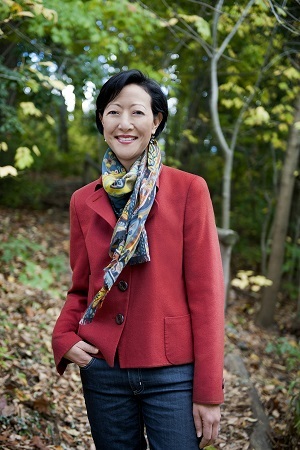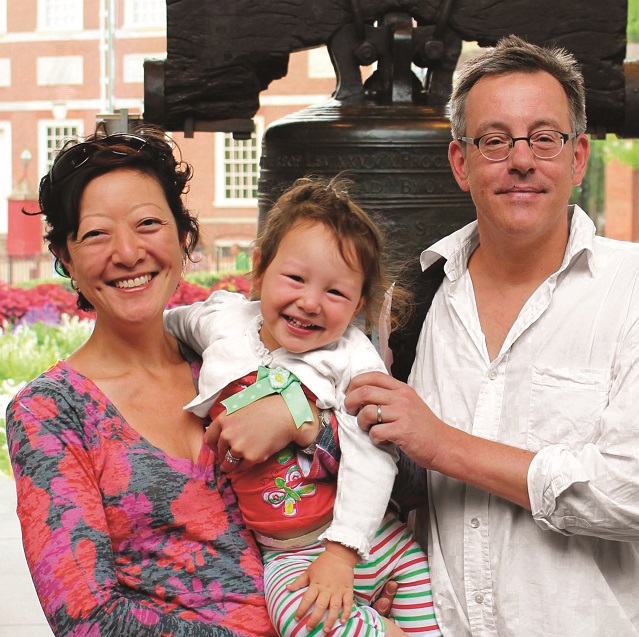- California Assembly OKs highest minimum wage in nation
- S. Korea unveils first graphic cigarette warnings
- US joins with South Korea, Japan in bid to deter North Korea
- LPGA golfer Chun In-gee finally back in action
- S. Korea won’t be top seed in final World Cup qualification round
- US men’s soccer misses 2nd straight Olympics
- US back on track in qualifying with 4-0 win over Guatemala
- High-intensity workout injuries spawn cottage industry
- CDC expands range of Zika mosquitoes into parts of Northeast
- Who knew? ‘The Walking Dead’ is helping families connect
New NRDC President Rhea Suh, symbol of the evolving Asian American identity
By Brian Han
Rhea Suh is many things.
Most recently she became the President of the Natural Resources Defense Council (NRDC), which puts her at the helm of one of the most influential environmental agencies in the U.S. if not the world.
Before that, she served for five years as the Assistant Secretary at the U.S. Department of the Interior under President Barack Obama and his administration.
The list could go on, but there are certain qualities that aren’t so apparent even in the most impressive of resumes.
Suh is also a symbol for the evolving Asian American identity.
She was born to Korean parents who both found themselves searching for better opportunities in the U.S. — not only for themselves, but for the generations to follow.
It’s not an entirely unique premise, but where they decided to settle was a bit more atypical.
“My father got an offer to be a tenure-track professor at the University of Colorado Boulder after graduating from UC Berkeley and I was born there a few years later,” Suh told The Korea Times during an exclusive interview. “It was not a destination point for other Korean immigrants at the time and probably still isn’t today. We were probably the first Asian family to really settle there.”
Situated at the foot of the Rocky Mountains, the area was an ideal setting for anyone to develop an intimate relationship with nature.
As the town’s only Koreans residents, the family had to make more of a concerted effort to preserve tradition and culture.
“My mother made really great kimchi that we buried in the backyard during the middle of winter so I kind of got the rustic experience that most modern Koreans don’t actually get to witness,” Suh recalls. “Even though I wasn’t raised in a community with other Koreans, I absolutely feel like I was raised very much in a Korean household.”
Although Boulder has a reputation for being a very liberal minded city — a characteristic that extends back to the 1960s — it wasn’t quite ready for the Suh family.
Assimilating into a local culture that had very limited exposure to Asian immigrants, or even Asian Americans for that matter, presented familiar hardships without a supportive immigrant community that one might find in California or New York.
“We faced a lot of prejudice no doubt about it,” she said. “We were the first non-white family to move into our neighborhood. When I was about five or six our house was vandalized, racial slurs were not uncommon to hear on the playground.”
The situation forced her and her two older sisters to become more Americanized than they would have hoped.
“My parents made the decision very early on because of the very difficult racism that they confronted to not teach us how to speak Korean,” Suh said. “They spoke Korean at home, but we weren’t taught or even encouraged to learn or speak it with them. It’s a sad story that many other Koreans of my generation have faced around the country. I have a lot of regrets about it, but also recognize that my parents had our best interests at heart. It’s truly a shame that they felt the need to make that choice.”
In a way the hybrid Korean and American parenting approach did sacrifice some tradition, but it also combined a strong work ethic and an open mindedness towards where her interests would take her.
She attended Columbia University to study environmental science — an academic field that certainly wasn’t a common choice among Asian Americans at the time.
“When I’ve talked to Korean Americans about environmental issues, public service, working for governments or non-profits, I get the sense that even today it’s still out of the norm,” Suh said. “More stereotypical tracks of becoming a doctor, lawyer or working in finance are still dominant, but we’re seeing a real evolution in where Korean Americans can take their careers.”
Indeed, Suh herself is a prime example of that.
Even with how far she has come since growing up in Colorado, the thought of a cultural compromise still weighs heavy on her mind.
Suh is making an effort to preserve the Korean identity through her four-year-old daughter, Yeumi.
“I decided to name her after my great-grandmother on my mother’s side,” she explained. “It’s a family name that means a lot to us. Since Yeumi was the first granddaughter, we were lucky enough to be the first to use the name and honor my great-grandmother.”
This past New Year, she decided to teach her daughter one of the oldest Korean traditions known as “sebae” (세배) in which younger generations bow to their elders to pay their respects.
“I gave her my ‘hanbok’ (traditional Korean garb) from when I was five-years-old and when I tried to get her to put it on, her response was, ‘It’s too scratchy!’” she said.
And similar in the way she wants to hand down customs to her daughter, her professional goal is to leave a legacy in which climate change issues become a thing of the past for future generations.
“As the mother of a young child, I refuse to leave my daughter a world beyond fixing – and I know it’s not too late,” she wrote back in September. “NRDC has been a leader in helping to reveal the common sense clean energy solutions that will help us solve climate change. For the sake of our children, and the health and safety of all Americans, we must put an end to climate change pollution and create a sustainable future for everyone.”
It’s a bold vision, but it’s one that you would probably want from the leader of an environmental movement.
____
(Feature photo credit: Joshua Paul for the NRDC)



















Anthony Guerrero
March 16, 2015 at 6:55 AM
This is inspiring. Thanks Rhea!